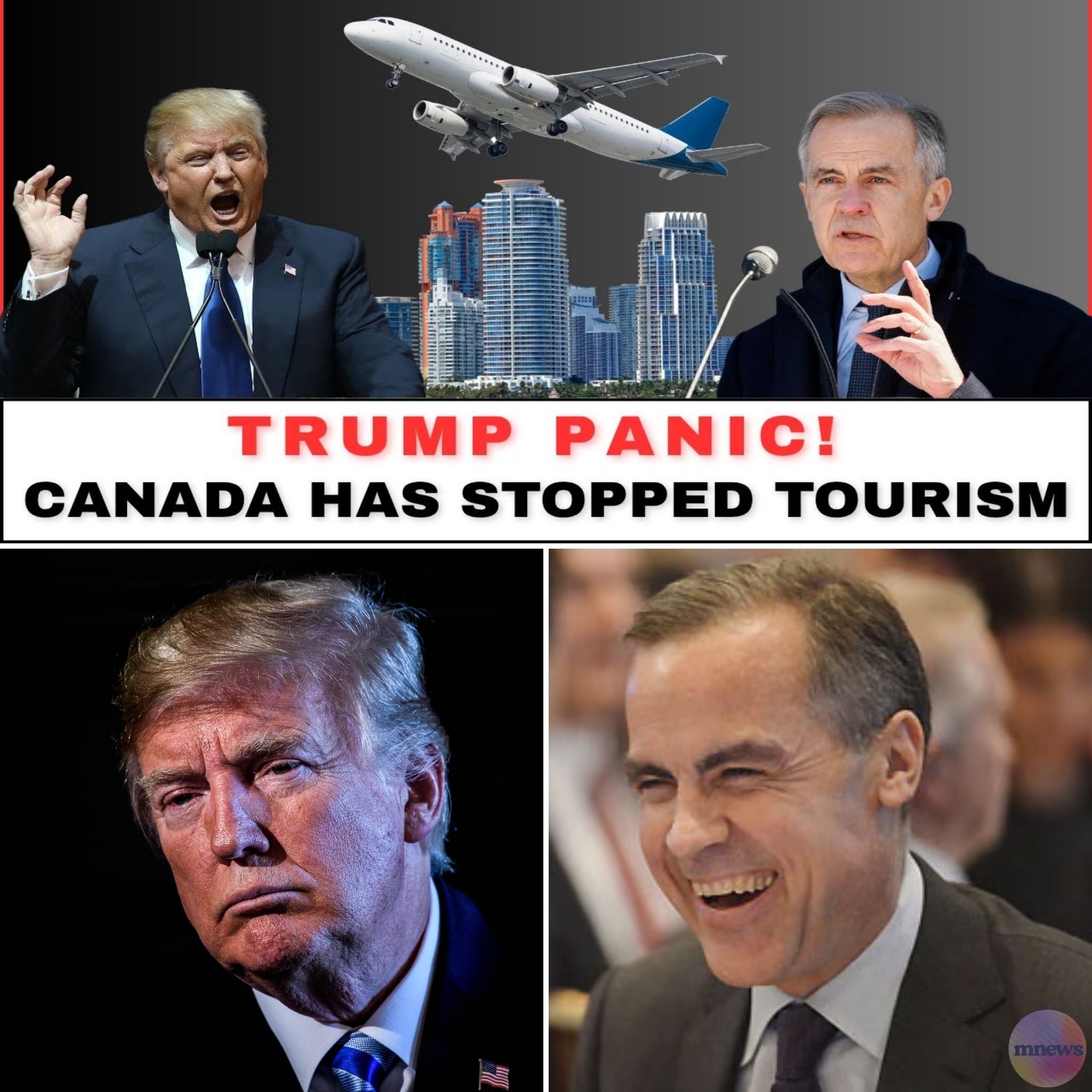In a stunning turn of events, newly released travel data reveals that a silent boycott by Canadian travelers is costing the U.S. economy an astonishing $5.7 billion in tourism revenue this year. The fallout from escalating trade tensions and political rhetoric has led to a significant decline in Canadian visits, with projections indicating a drop from over 20 million visits last year to just 15.7 million in 2024.

This dramatic shift in travel patterns is particularly evident in tourist hotspots like Las Vegas, where businesses that once thrived on Canadian patronage now face empty hotel rooms and quiet streets. The economic implications are severe; restaurants, hotels, and local shops are feeling the pinch, with many forced to cut staff or even close their doors. The U.S. Travel Association warns that inbound tourism spending is expected to decrease by more than 3% this year, largely due to the absence of Canadian visitors.
At the heart of this crisis are the trade tariffs and political tensions that have strained the longstanding relationship between the U.S. and Canada. Once a model of cooperation, the border between these two neighbors is now marked by suspicion and unease. Many Canadians perceive the U.S. as a belligerent partner, prompting a shift in travel habits as families cancel vacations and business travelers reconsider their plans.
Efforts by U.S. cities to mend fences, such as the Canadian Welcome Pass in Montana and symbolic gestures like renaming streets, have yet to sway public sentiment. Surveys indicate that many Canadians remain wary of traveling to the U.S., citing political rhetoric and border tensions as significant deterrents. The emotional cost of this boycott extends beyond mere dollars; it reflects a loss of trust and a disruption of cherished traditions.
Political leaders, including President Trump, have acknowledged the situation but have yet to provide tangible solutions. The silent boycott is a stark reminder of the intricate relationship between economics and human perception. Each canceled trip represents not just lost revenue, but also disrupted family bonds and missed opportunities for countless workers who depend on tourism.
As the U.S. grapples with the financial repercussions of this boycott, the road to recovery may be long and fraught with challenges. Economists predict it could take until 2029 for Canadian tourism numbers to return to pre-pandemic levels, underscoring the urgency of rebuilding trust and goodwill.
In a world where relationships can shift rapidly, the U.S.-Canada connection serves as a poignant example of how political decisions can ripple through everyday lives. The future of this vital partnership hinges on diplomacy and the willingness to restore the mutual respect that has long defined the border. As both nations navigate this turbulent chapter, the stakes are high—not just for economies, but for the very fabric of friendship that binds them together.





